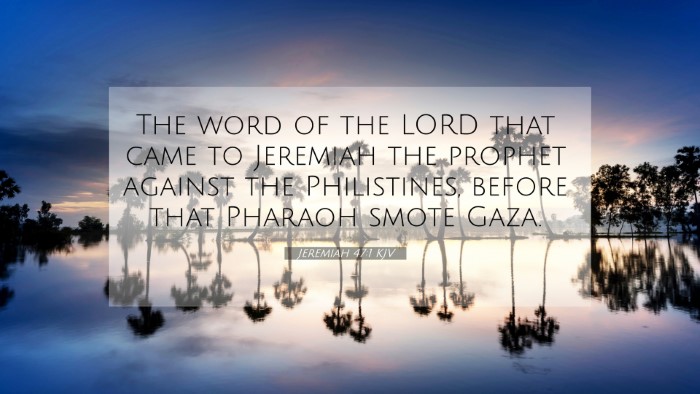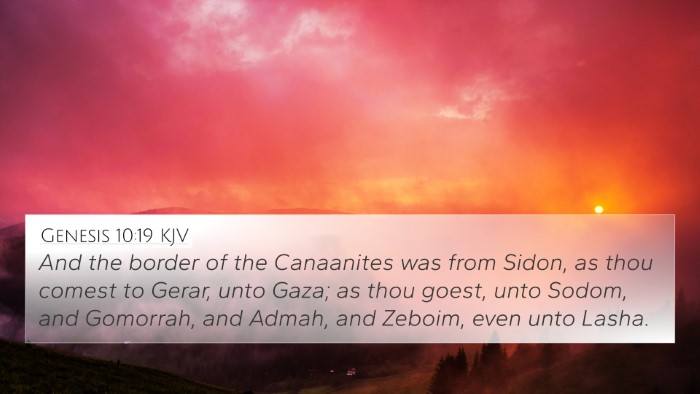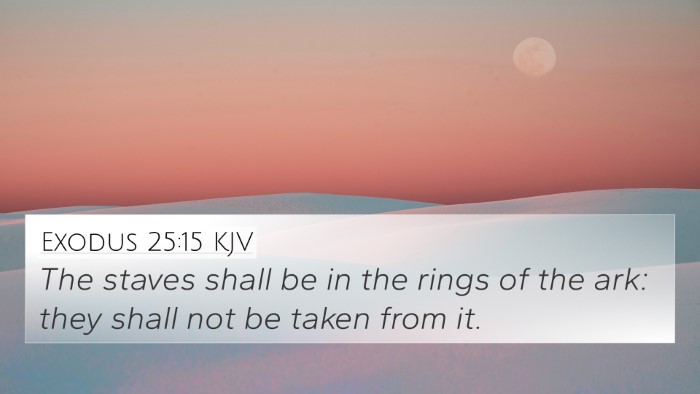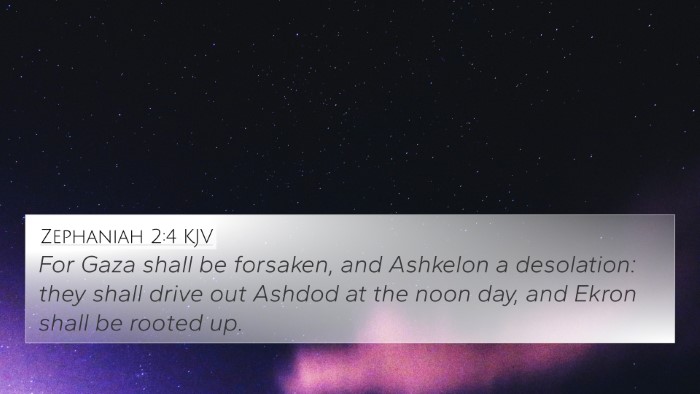Jeremiah 47:1 - Summary and Interpretation
In the verse Jeremiah 47:1, the prophecy concerning the Philistines is delivered, indicating God's judgment and the impending destruction that awaits them. This verse serves as a communication from God through Jeremiah regarding the devastation that will come upon the Philistine territories, particularly tied to the invasion of Nebuchadnezzar, King of Babylon.
Contextual Background
The Philistines were one of Israel's historical enemies, often depicted in the Scriptures as adversaries of God's people. This prophecy is part of a series of oracles against the nations surrounding Israel, affirming that God's sovereignty extended beyond Israel itself to the nations.
Insights from Commentaries
- Matthew Henry: Henry notes that this prophecy is significant as it reveals God's judgment against the Philistines. He emphasizes the certainty of the impending calamity, connecting it to God's previous judgments on other nations. The mention of the waves of water symbolizes overwhelming destruction.
- Albert Barnes: Barnes provides insight into the context of this prophecy, explaining that it forecasts the fall of Philistia due to the Babylonian conquest. He highlights the idea that God uses foreign nations as instruments of judgment against those who oppose Him.
- Adam Clarke: Clarke elaborates on the historical context, associating this prophecy with the eventual fall of cities like Gaza and Ashkelon. He points out the symbolic nature of water, suggesting that it represents the rapid and uncontrollable nature of the impending disaster.
Thematic Connections
Jeremiah 47:1 can be linked to several Biblical themes, as it demonstrates God's unwavering authority over nations and His role as a just judge. The destruction foretold serves as a warning and an illustration of God's covenantal faithfulness to Israel, by executing judgment on their enemies.
Cross-Referencing Related Verses
To further understand the implications of Jeremiah 47:1, we can identify several Bible cross-references that enrich the interpretation:
- Ezekiel 25:15-17: Discusses God's judgment upon the Philistines.
- Zephaniah 2:4: Pronounces destruction upon the land of the Philistines.
- Amos 1:6-8: Details the divine judgment against Gaza and the cities of the Philistines.
- Isaiah 14:29-31: Connects the fate of the Philistines with the overarching theme of judgment by God.
- Jeremiah 46:2: Related to prophecies against nations, emphasizing God's sovereign will.
- Jeremiah 49:28-33: Further prophecies concerning the judgment of various nations, including the Philistines.
- 1 Samuel 5: Historical account of the Philistines' conflict with Israel, providing context for their enmity.
Conclusion
The interpretation of Jeremiah 47:1 envelops several layers, including historical context, God's judgment, and the thematic consistency within Scripture concerning the Philistines. The cross-references help to weave a more comprehensive understanding of the text, illustrating the interconnected nature of Biblical prophecy and God's sovereign rule over all nations.
Further Study Tools
For those looking to enhance their study on Bible verse cross-references, there are various tools and resources available:
- Bible concordances to identify cross-referenced scriptures.
- Cross-reference Bible study guides that provide structured approaches.
- Online tools for Bible cross-referencing that allow for detailed searches.
- Bible reference resources focusing on thematic studies.









